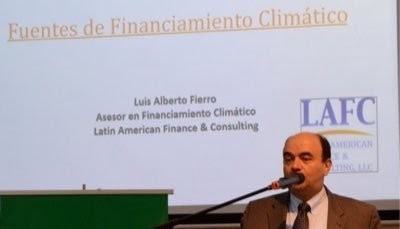Financing the energy transition in Ecuador
By Luis Fierro Carrion (*)
Twitter: @Luis_Fierro_C
The acceleration of climate change and the Russian invasion of Ukraine have produced a renewed impetus regarding the need to move towards an energy transition in Ecuador.
The extortion generated by the indigenous movement strike, which forced the government to increase the subsidy for fossil fuels, makes even more urgent the need to reduce fossil fuel consumption and promote the use of renewable energy.
Fossil fuel subsidies constitute complete nonsense, given their negative impact on income distribution, on health, climate change, air pollution and the fiscal deficit.
One way to address these problems is to promote the use of electric transportation, whether individual or collective. In the collective sphere, it seems that the Quito Metro, whose construction ended without having resolved the issue of its operational management, is finally going to start operating in a few months. In Cuenca, the tram also had to wait more than a year between its construction and its operation. In Guayaquil, the Airway that connects Durán with Guayaquil came into operation, although with little influx of the public. In Guayaquil, the use of electric buses has also been promoted.
These are incipient steps in the use of electro-mobility in Ecuador. There are resources from multilateral development banks (IDB, CAF, AFD, KfW) to promote a more intensive use of electric vehicles, which also requires the installation of a network of battery charging stations.
By using electric vehicles, the consumption of fossil fuels is reduced (and, therefore, the cost of subsidies for the State is lower), and the excess capacity of hydroelectric generation is better used (the vehicles should preferably be recharged late at night, with a reduced rate).
Efforts have also been made to promote renewable energy beyond large hydroelectric plants, through the approval for the installation of solar and wind power plants (in Loja, Manabí, Galapagos, among others).
The government has announced plans to rationalize the use of natural gas, which may include: stopping burning gas at the oil wells and refineries, and instead capturing and using such valuable resources; and making better use of the gas from the Gulf (instead of forcing the thermoelectric generation at the Termogas Machala plant, at hours when hydroelectric generation would suffice).
There are resources available to promote the energy transition towards greater use of renewable energy and more energy efficiency, by multilateral and bilateral development banks (World Bank, European Investment Bank, IDB, CAF, AFD, KfW, Green Climate Fund, etc.).
The National Climate Finance Strategy was approved in February 2021. This strategy seeks to establish a clear and effective governance of climate finance; transversally integrate the climate approach in the financial system; and promote greater access to climate finance.
The Ministry of Economy and Finance and the Ministry of the Environment, Water and Ecological Transition are in charge of promoting these processes. In addition, the accreditation of a public bank before the Green Climate Fund and the Adaptation Fund is contemplated.
Ecuador is already a power in the generation of energy with low emissions, and must continue promoting the conversion of the vehicle fleet towards electromobility.
(*) A Spanish version of this column was published on September 16, 2022, in "Diario El Universo" of Ecuador:
https://www.eluniverso.com/opinion/columnistas/financiando-la-transicion-energetica-nota/


